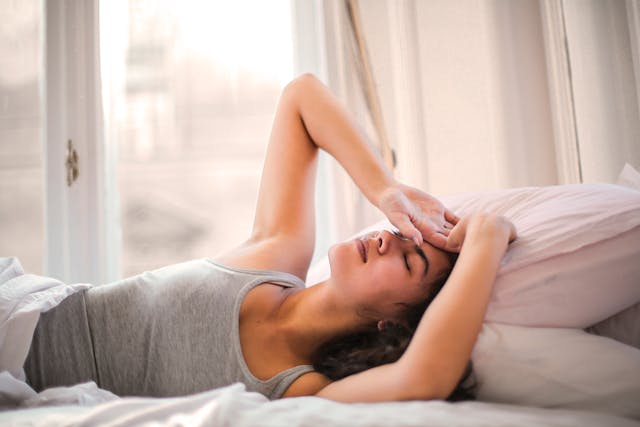Call Today to Schedule an Appointment: 212-319-5282
Allergies and Sleep: How to Get a Good Night’s Rest
What are some good ways to manage allergies and Sleep? Sleep is essential for our well-being, but allergies can turn a peaceful night’s rest into a miserable ordeal. From seasonal allergies to city living, allergens are prevalent and ensuring quality sleep can be a challenge. Keep reading for expert advice on how to get a good night’s sleep despite allergies.

The Impact of Allergies on Sleep
Allergies can disrupt your sleep in several ways:
1. Nasal Congestion
Allergic rhinitis (hay fever) can lead to a stuffy or runny nose, making it difficult to breathe through your nose while sleeping.
2. Sneezing and Coughing
Allergic reactions can cause frequent sneezing and coughing, further disrupting your sleep cycle.
3. Itchy Eyes and Throat
Itchy eyes and throat can be irritating, making it hard to relax and fall asleep.
4. Restless Nights
Sleep disturbances due to allergies can lead to fragmented sleep, leaving you feeling fatigued and groggy during the day.
Tips for Getting a Good Night’s Sleep with Allergies
Top NYC allergist Boyan Hadjiev, MD aka “Dr. Sneeze” recommends the following strategies to improve your sleep quality:
1. Allergen-Proof Your Bedroom
- Use hypoallergenic pillow and mattress covers to limit exposure to dust mites and pet dander.
- Wash bedding, including sheets and pillowcases, in hot water at least once a week.
- Keep windows closed during high pollen seasons to prevent outdoor allergens from entering your bedroom.
2. Maintain a Clean Bedroom
- Regularly vacuum carpets and rugs with a vacuum cleaner equipped with a HEPA filter to trap allergens.
- Dust and wipe down surfaces with a damp cloth to prevent allergen accumulation.
- Consider removing carpeting, which can harbor allergens, and opt for hardwood or tile floors.
3. Shower Before Bed
Taking a shower before bedtime can help wash away pollen and other allergens from your skin and hair, reducing the risk of allergen transfer to your bedding.
4. Use Air Purifiers
Invest in high-efficiency particulate air (HEPA) air purifiers for your bedroom to help remove allergens from the air.
5. Medications and Allergy Treatment
Consult with Dr. Sneeze about appropriate allergy medications to manage your symptoms. Allergy treatments, including immunotherapy (allergy shots), may provide long-term relief.
Allergies and Sleep: Contact NYC’s Top Allergist
If allergies are interfering with your sleep in the city that never sleeps, it’s time to seek expert guidance from Boyan Hadjiev, MD. You can contact his practice for an appointment at:
Allergy, Asthma and Sinusitis P.C
Boyan Hadjiev, MD
30 East 40th Street
Suite 1200
New York, NY 10016
212-319-5282
Dr. Sneeze is dedicated to helping NYC residents enjoy a good night’s sleep. Schedule an appointment today and take the first step toward restful, allergy-free nights with the support of NYC’s top allergist.
Serving all of New York City and the Tri State Area including Zip Codes: Top Allergist NYC Midtown, Chelsea and Clinton: 10001, 10011, 10018, 10019, 10020, 10036 | Gramercy Park and Murray Hill: 10010, 10016, 10017, 10022 | Greenwich Village and Soho: 10012, 10013, 10014 | Lower Manhattan: 10004, 10005, 10006, 10007, 10038, 10280 | Lower East Side: 10002, 10003, 10009 | Upper East Side: 10021, 10028, 10044, 10128 | Upper West Side: 10023, 10024, 10025
